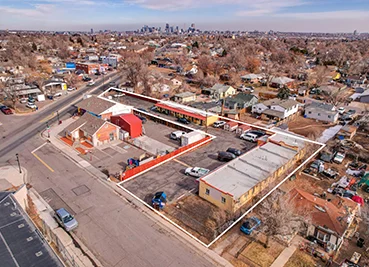Denver remains one of the top places for real estate investment and development, according to some 3,000 industry professionals surveyed and interviewed by the Urban Land Institute and accounting giant PwC.
The two organizations teamed up to gauge the prospects for 80 U.S. cities in 2021. Those interviewed ranged from property owners and developers to bankers, architects, brokers, lawyers, engineers and homebuilders.
Denver ranked 13th in terms of overall real estate prospects, according to the survey results. Raleigh/Durham, Austin, Nashville, Dallas/Forth Worth and Charlotte, North Carolina comprised the top five.
Survey respondents viewed Denver’s housing market even more favorably, collectively ranking it ninth overall.
The surveys and interviews happened in August and September, in the throes of the COVID-19 pandemic. The takeaways from members of the real estate industry around the U.S. signal that even under the pandemic’s duress, Denver remains a desirable and popular destination for developers and investors.
“Charlotte, Denver, Dallas, Nashville, Portland and Seattle are six favorite boomtowns, attracting far more than their share of smart young workers,” the report notes. “These markets are already starting to recover from massive job losses due to COVID.”
The report groups Denver under the “18-Hour Cities” umbrella — a term used to denote medium-sized cities that are popular in-migration destinations for both people and companies. Though not necessarily inexpensive, they’re typically more affordable than larger, more established markets, the report says.
Other markets in this subgroup include Austin, Charlotte, Nashville, Salt Lake City and Raleigh/Durham.
Investor demand in Denver is among the strongest in the nation, with Denver receiving the eighth-best overall score from local market participants surveyed by ULI and PwC.
The full report, which is available at ULI’s website, includes an extensive analysis of the pandemic’s impact on all sectors of the real estate industry. The report’s authors note the industry’s frequent use of a baseball-inning metaphor to assess the lifespan of any trend.
“Eventually, predicting the current inning became old news as we settled into a long growth period. But once again, we are back in the game,” the report notes. “For most, we are still in the first or second inning of COVID-19. Those who follow baseball know that the early innings are often a very poor predictor of the eventual outcome of any game, let alone a new disease as lethal and little known as COVID-19.”




